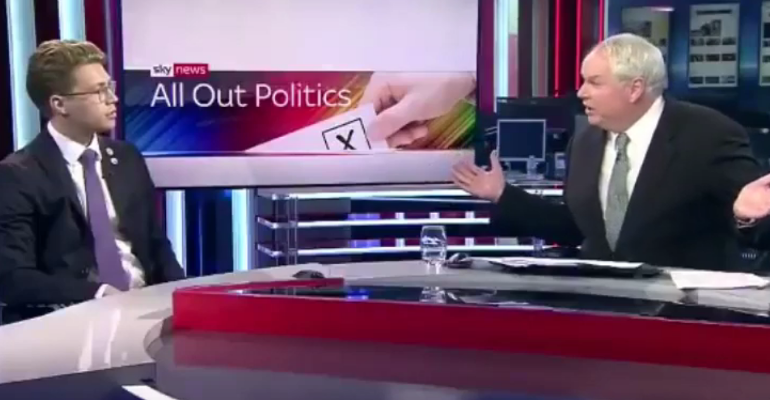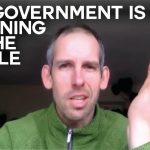Impartiality in the media is impossible. But Sky News has taken things too far.

This week Sky News haven’t just been reporting the top stories – their journalists have been making the headlines themselves. From Adam Boulton branding Extinction Rebellion “fascistic” to Jayne Secker ranting about young “ill-equipped” tenants, the TV news channel seemed on a mission to remind us of the worst of journalistic bias. Sky’s interviews are a warning of the hostility any upstart group like Extinction Rebellion faces in the mainstream media. It’s also a reminder that journalism will always have bias.
Objectivity is impossible
At times this bias can have a valid role. In fact, it would often be better if journalists were able to acknowledge their own partisan beliefs because, if we’re honest, media objectivity is impossible. Every journalist is biased because every person is biased. Journalists can work with the best intention of neutrality, but until robots are reporters or someone invents an algorithm that decides which stories are most important, the news will never be entirely objective. Each time a reporter chooses a story to pursue they determine its newsworthiness based on their own values or those of their employer – and these values are shaped by the socio-political environment we’re surrounded by.
Rather than being terrified of partiality, the media need to accept that it’s simply unavoidable. Journalists should admit that absolute balance is an impossible goal and instead aim to check their facts and be transparent in their politics and sources. Accepting our biases empowers us to right them, especially when it comes to diversity and under-reported issues.
Opinions as attack
But there is a line. There’s a big difference between having inherent bias in your research and newsgathering process – bias that it’s impossible to remove – and using your journalistic position to preach your personal opinion. Neither Adam Boulton nor Jayne Secker’s interviews were about climate activists or renters. They were about journalists using their job to air their grievances and demean people they disagreed with. If they were doing this in a format that marked this as opinion, such as a newspaper column or on a talk show, this might be okay. But whilst positioned as the voice of Sky News it isn’t.
I’m not a hypocrite here either because, as much as it could be viscerally satisfying, I don’t want to see left-wing journalists shouting their opinions at more conservative interviewees. I want them to use their viewpoint to search out important stories and to ask the hard questions. It should inform a dialogue, not an attack.
Weaponising bias
It’s this weaponisation of bias that makes it so dangerous in the current climate. We’re used to bias taking the form of toxic tabloid headlines or reporting which deliberately misleads its audience. This kind of bias is never okay. Yet environmental journalism demonstrates why always striving for neutrality can be dangerous too. Until recently the use of climate change deniers in the media created a “false balance” where work to create neutrality in fact distorted the fact that the vast majority of scientists agreed global warming was real, dangerous and caused by human activity.
Between shouting at members of the public and quoting debunked scientific ideas there has to be a middle ground where bias is regulated but accepted as unavoidable. A place where reporters can admit they have vested interests, but use this to inform their work and to make them conscientious of perspectives they might ignore. What that looks like for a non-partisan broadcaster like the BBC or in a culture where readers don’t often get past the top line, I don’t know. But surely, as politics fragments and we seek to heal the country’s wounds, a more nuanced approach to objectivity is something to strive for.




Sky news Australia is too tight bias for me personally and I find the are along the same line as Fox. It is just another brand of more BS from Rupert Murdoch
I find sky presenters very biased towards remain, I pay for sky, as a leave voter I have come to the conclusion that sky does not deserve my payments.
I agree, sickeningly pro-remain and pro-Corbyn.
Reporters should only report on the news and not give their opinion ever. They can interview the people involved that have deferent options, but we do not want their opinion.
I agree. The way they are pushing the BLM movement, which most people can see is an anarchist movement designed to help bring down western society, with barely concealed anti-white motives, only adds to the feeling that this company is a shady propaganda machine. And behind the scenes, no doubt, some very rich psychopaths are benefitting from the whole thing.